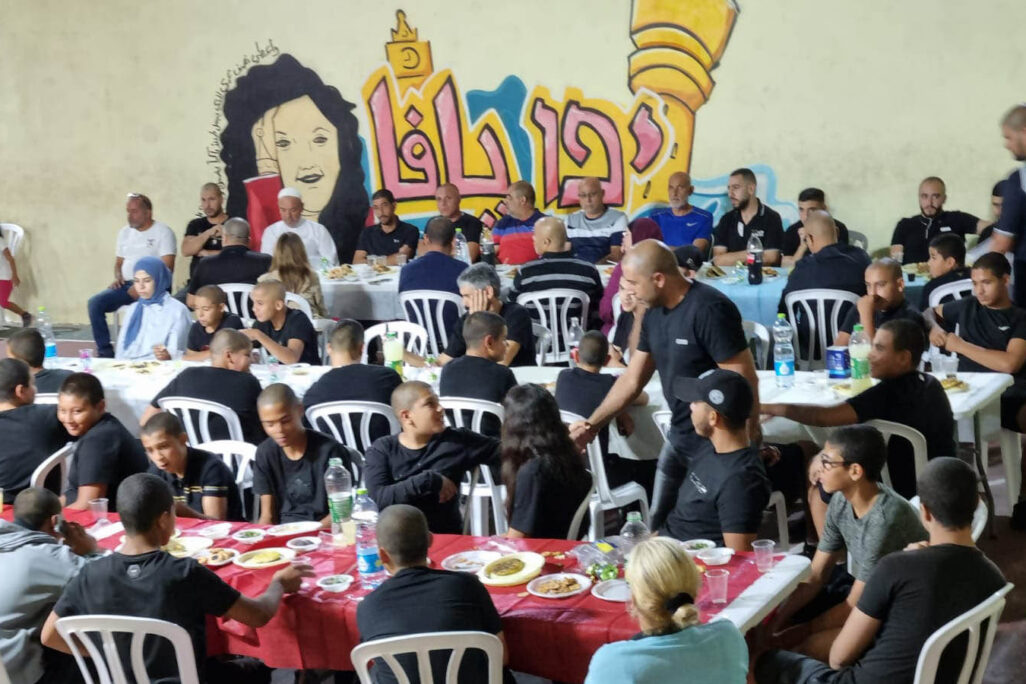
“Our job is to think about how to give the youth a future,” said Ahmad Hasona, director of the Jaffa-based Ajami Youth Center. “The easiest thing is to be on the street. At the age of 16-17, they just want money to spend so they can go out. They need to be educated to look toward the future, and to educate for work with dignity.”
It is Ramadan evening in Jaffa. The voices of the muezzin calling for the evening prayer mix with the noise of traffic from the street. A flute playing from one of the houses against the backdrop of drum beats by the Muslim Scouts. Families stroll down the main street. Groups of youth gather in the gardens and street corners. The sounds of ball games rise from the open courts at night.
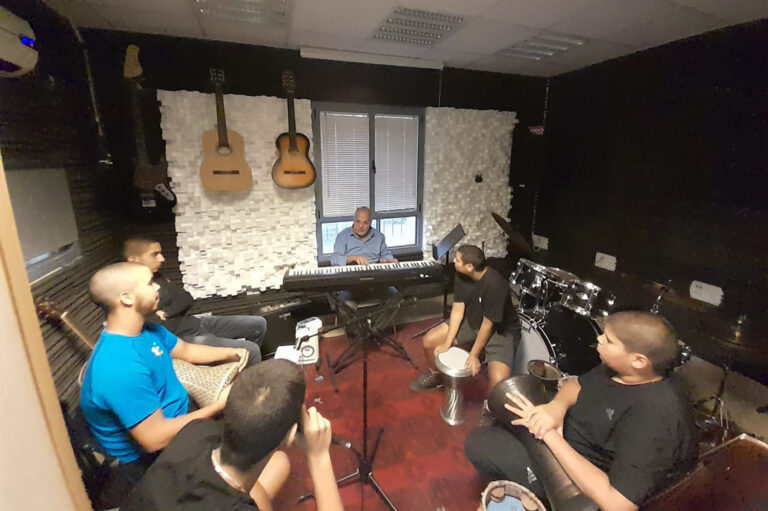
“Our job is to meet them on the street, in the park, at home,” Hasona said. “Now we go out after the Tarawih (daily prayer of the end of fasting during the month of Ramadan) to talk to them. We are in constant contact, and we with meet them every day.”
“The municipality has invested in opening the community centers after the Iftar meal,” said Ala Abu Amara, a music therapist at the center. “Our center is open until 9:00 PM. The public space is open. Where the youth are, we’re there.”
Mohamed Karawan, deputy director of the Jaffa Community Enterprises Division, says that the biggest challenge is that life is turned upside down during Ramadan.
“Night becomes morning and morning becomes night,” he said. “Currently there’s a school holiday and soon the youth will be going back to school. After the Iftar, at about 7:15 PM, the street comes to life. The shops wake up. After the last prayer and Tarawih, until the morning prayer, the youth are very active.”
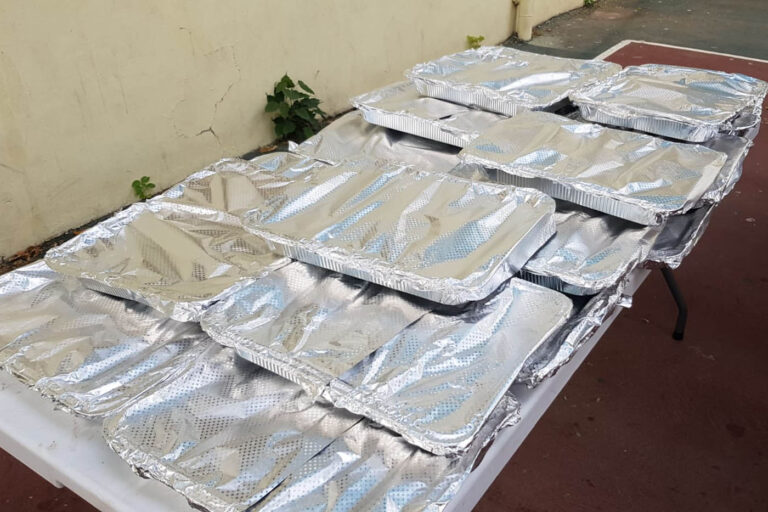
According to Karawan, there is a tradition of activities in the center.
“There are night workshops for children and families. Cultural institutions and sports institutions work to prevent vagrancy,” he explained. “In the public space, there are activities for the whole community like Ramadan processions. There are performances, and everything is in tune with the spirit of the month.”
He takes pride in the high turnout to their event.
“Last year, 70 children came to Iftar. This year at the last meal, 220 youths came with their parents. After the attack on Dizengoff Street [in central Tel Aviv] we were given permission to do a Ramadan market on two evenings – 5,500 people showed up,” Karawan said. “The workshops are full of people wanting to participate. These activities are also joined by the Ethiopian Jewish community.”
The youth were active participants in the preparation and organization of these events.
“They volunteer at events,” he said. “Instead of managing them, they need opportunities to be able to help out.”
“There’s crime on the street, and most of it is youth-driven, but there are a lot of other things that are happening as well”
Hasona adds that Ramadan is a month of giving and forgiveness, contrary to what is shown in the media.
“It’s a month of helping and doing good,” he said.
“We bring in sheikhs who talk about the essence of Ramadan, who mobilize the youth to volunteer, give, help and be part of the community. We made meals for people with disabilities in Jaffa,” Hasona said.
“The youth prepared the food and the venue. We wanted to connect them to the families. We made meals for the elderly. We prepared a meal in trays, which they would eat with the grandparents in the houses. They prepared 170 dishes and went to eat with their grandparents at home.”
The youth also participate in the distribution of food products and meals to the needy during Ramadan.
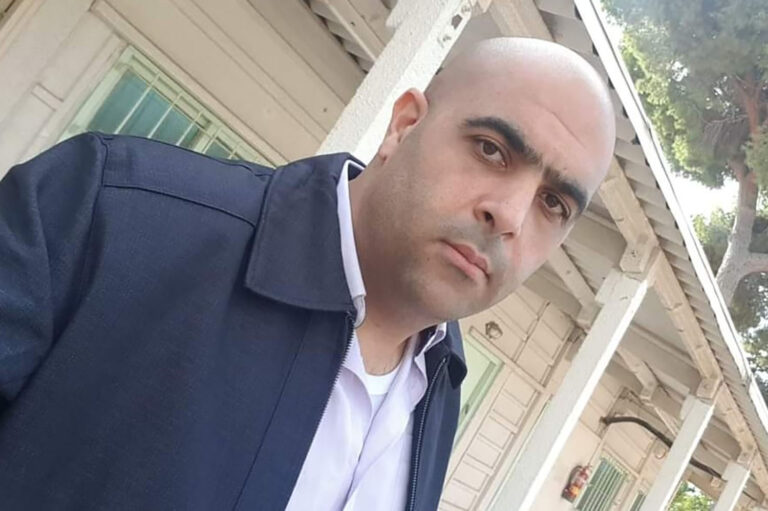
“The madrichim (mentors) do things with them,” Hasona explained. “The youth see the madrichim and want to come to the youth center’s activities. You can’t force them to come.”
But the activities rely on regular contact throughout the year.
“In the morning there is a HILA program [which aims to re-integrate at-risk youth into the formal education system] here, and in the afternoon it becomes a therapeutic educational space,” says Hasona.
“There’s a social worker and a psychologist here. Every worker has a group of patients. The instructors make personal calls to everyone. The madrich’s (mentor) job is to meet the youth outside, and in the home, and bring him to their activities. They get three meals a day here for free.”
Abu Amara adds that the centers are provide an alternative environment for youth to their situation at home, which is usually not good.
“They are not leaving,” he says. “The madrich needs to persevere and be in touch with them.”
Karawan also talks about the ongoing need to invest in youth in Jaffa, saying that the center currently "has 320 youth, half are Muslim.”
He explains about the Campus Noar (Youth Campus) program, whicih provides amenities for youth who do not have the means to access these services. The program was established a year and a half ago, part of the municipality’s goal to let every youth participate in the center, regardless of their financial situation.
“250 youths participate in the campus and hold membership in the youth center, including the summer camp and a small group learning center,” he said. “Activities are held five days a week after school. During Ramadan, we extended the hours of operation.”
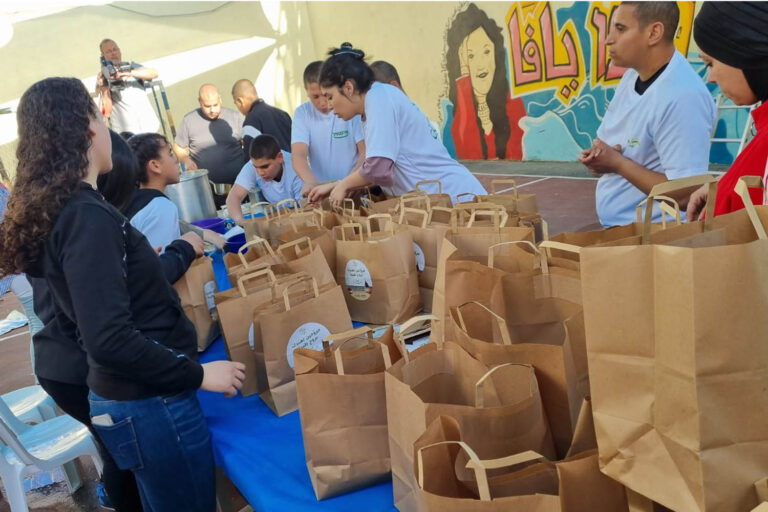
Hasona says that over time the center has provided more activities.
“We have a gym. Youth can come for free, provided that they work with our madrich, who is not a fitness instructor, but talks to him about life, about Ramadan, and educates them.”
“I thank G-d that it has fallen to me to take part in this initiative, and that my family and children will also enjoy these activities," Karawan added.
But the grim reality doesn’t leave the minds of the madrichim even during Ramadan.
“It’s not easy,” Abu Amara said. “There’s crime on the street and it is usually youth-driven. But there are also a lot of other things that are happening as well, there is culture and people who are trying to rebuild Jaffan society.
“We started a mentoring project. There are people who have changed their lives for the better and are now mentoring Jewish and Arab youths.”
“You don’t need extremist elements to incite, there are social networks,” Hasona added. "We have a lot of conversations about the essence of Ramadan, about this month doing good to help people.”
Abu Amara says the boys have been talking for months about what will happen during Ramadan.
“There is a matter of good citizenship. You have to be stubborn and not drop the subject. We have to insist. If you invest in your youth, there will be results and you will see it on the streets. There are fewer problems with the police.”
“The youth see what they are missing at home and what people outside of Jaffa have, and it angers them”
Hasona is planning the future of the center.
“Today, there are youth here up to the age of 18. Then there’s an employment project,” he explained. “I’m looking for someone who’ll be in charge of this, to accompany them after they turn 18, when they’re at work, to be in touch with them and to know they’re on the right track.”
He dreams of opening a youth village, where the youth will be able to sleep and stay in touch all the time. In the meantime, he is planning to expand the center and recruit more madrichim.
“I have now managed to have 20 youths per madrich, instead of 35. This gives us an opportunity to reach out to more youth.”
When Hasona is asked about the roots of the problems affecting these youth, he says: “It starts from a difficult socioeconomic situation. We need to find them a replacement for the street, and give them everything they need at home. We live in a mixed city. The youth see what they lack at home and see what people who come from outside Jaffa have. It angers them.”
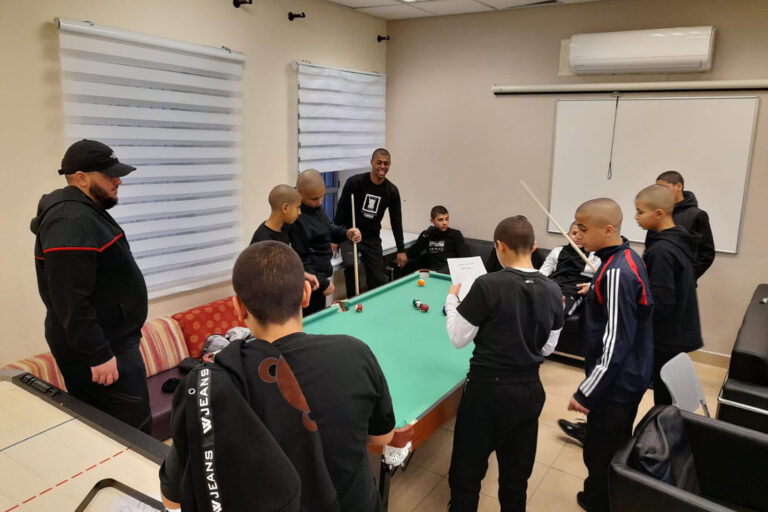
Abu Amara agrees that the economic situation is a crucial factor in the problems.
“They have no dreams. They wake to reality without their basic needs met. There is discrimination on a national basis. You try to deal with the existing situation and solve the problem,“ he said. “The solution is budgets and planning. If I want to take care of the child, the root of the problem is in the parents’ situation.”
The attitude of the authorities makes the situation worse for the youth.
“These youth are ostracized from society from the moment they were arrested by the police,” Abu Amara said. “We’re trying to deal with a child who knows he’s not welcome. You have to deal with their anger and frustration. If they don’t trust, they won’t show up. They will only come if they feel confident that there is someone to talk to, that there is a significant adult for them to turn to.”
Hasona says the door is open to everyone.
“If a youth comes here, we need to create something else for him. I know what he did yesterday, but right now he’s here, and I’m going to give him everything I can.”
This article was translated from Hebrew by Benji Sharp.






